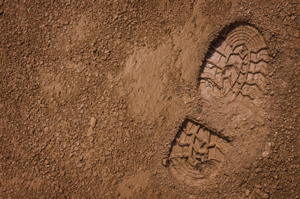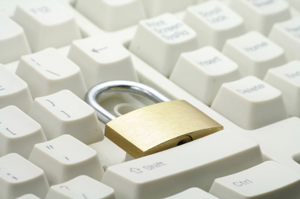Use 'Print preview' to check the number of pages and printer settings.
Print functionality varies between browsers.
Printable page generated Friday, 21 November 2025, 8:36 AM
Week 8: Continuing your digital journey
Introduction
Welcome to Week 8, the final week of Digital Skills: Succeeding in a digital world. You are almost at the end of the course and your Statement of Participation is within reach!
Last week you considered what advice you might give to Banjar and Zin Min Thant. This week is all about reviewing your own reflective journal, identifying the key things you have learned, and putting in place some practical steps to take over the next few months.
You will also have the opportunity to think about what you will do next in terms of learning opportunities, with a view to continuing your journey as a learner in a digital world.
By the end of this week, you should have:
- reflected on your journey over the eight weeks of this course
- identified, as part of a personal development plan (your reflective journal), some steps for moving forward.
1 Taking stock
During this course you have had the opportunity to engage with various aspects of life online.
In Week 1 you thought about the technology and the digital skills you use in everyday life. You also started to develop your reflective journal.
In Week 2 you used The Open University’s Digital skills framework to assess your confidence levels across a range of skills relevant to study and work. You identified the resources that are available to help you in areas where you feel less confident, and prioritised three activities to try out.
During Week 3 you thought about your digital identity and how you can ensure you have a good digital footprint. You reflected a little on your digital journey and what it means to be a digital citizen.
Week 4 tackled the important topic of e-safety and ethical behaviour online, including the rights and responsibilities relating to material that you or others put online. The topic of ‘
In Week 5 you explored your information landscape. You were introduced to some techniques for smarter searching, dealing with information overload and judging the trustworthiness of online sources, whether those are people or information.
Week 6 was all about choosing and using apps to help you in all areas of life. In particular, you thought about how apps can help you with communicating, connecting, creating, collaborating, keeping up to date and managing information.
In Week 7 you read about how developing digital skills has helped others. You were asked to advise them on how they can use their digital skills to achieve their goals. Now you’ll do the same for your own situation.
In the next few sections, you will reflect on each part of the course and apply what you have learned to your own life. Make sure you have your reflective journal to hand as you do so.
2 Skills development
In Week 1 you thought about the major role technology plays in contemporary society and why it is important to ‘be digital’. You were introduced to some of the digital skills that are important in everyday life, and that you may already be using. You applied a few of these skills to some typical real-life scenarios such as booking a hotel (Activity 2) or finding a recipe (Activity 4). If you have some gaps in your everyday computer skills – for example, how to set up an email account, fill in online forms or pay for things online – you might like to look at #OnlineSafety on YouTube.
The aim of Week 2 was to introduce you to The Open University’s Framework for digital skills. This focuses on the kind of digital skills you need for study. You can learn online through free short courses such as this one, by researching a topic yourself, or by doing formal study at a university or college. In all cases, your digital skills will be of benefit when doing research and academic writing. They will also help you to get organised and manage your time well, for example, by keeping track of sources you have found. Being able to communicate and present yourself well online means you will find it easier to connect with other learners and work together. This is applicable to any kind of university study and particularly important in a distance learning environment.
Many of these skills are also relevant to the workplace. You had the opportunity to reflect on how far you use and feel confident with the skills in the framework. In order to help you develop skills in those areas where you feel less confident, you were encouraged to pick three activities from The Open University’s Being digital collection and add them to your reflective journal. The Being digital resources are freely available and you can return there at any time to learn new skills.
Now you will review the activities you identified, to see what difference they have made in practice.
Activity 1 Your digital skills: progress so far
If you have not yet had the opportunity to work through the activities you identified in Week 2, do so now. Think about how what you have learned will help you in specific situations in your life. Make a note in your reflective journal.
If you have already done the activities, how have they changed the way you do things?
In the next few sections you will have the opportunity to reflect in more detail on key areas covered by this course. You will also find out more about how these skills are relevant to online learning.
3 Making your mark online
In Week 3 you considered how you appear to others online (your digital profile), how you present yourself (your
You learned how you can keep control of your digital footprint, while making the most of free learning opportunities. You were introduced to the concept of ‘digital citizenship’, a term that is becoming part of everyday language. Being able to communicate well online is a key skill when learning and sharing with others online and to be a good digital citizen in general.
The process of looking at the ‘footprint’ of Kyaw Win and reviewing your own digital footprint highlighted how each person’s digital footprint is different. Your digital identity and digital footprint will change as you become more active (or active in new ways) online.
Studying online
Becoming a student can have an important positive influence on your digital identity. It will introduce you to new interests and new communities of learners, both formal and informal. As you move through your chosen course, the new knowledge and skills you gain can be added to your digital profile. You may find that your contact with fellow students is mainly online. If you are able to interact confidently and sensitively in online spaces such as forums or
You will also find members of academic staff active on social media. This helps them to share their work widely and to enhance the reputation of the institution they belong to. Searching for relevant academics online will help you to establish more about their work and perhaps even make personal contact with them. Being able to learn from experts in your field is one of the advantages of the internet and social media.
Connecting with others, whether fellow students or staff, can reduce feelings of isolation, provide a means of giving and receiving support and help you to better understand what you are studying. For distance learners in particular, it is a way of broadening your horizons and keeping in touch with people.
You have seen how others have moved forward in their digital journeys. For example, using social media to help pursue career goals, becoming more active on
Activity 2 Digital identity and digital footprint
In Week 7 you saw how Banyar was using the internet to search for information to change his career prospects.
Think about the advice you gave him on finding and evaluating information in Activity 1 and 2. Does any of this advice apply to you?
Make a note in your Reflective journal of anything you plan to do to continue developing your digital identity or to improve your digital footprint.
Next, you are going to review what you have learned about e-safety, ethical behaviour and ‘digital well-being’.
4 Copyright and creative commons
The internet offers exciting possibilities to find, use and
Knowing how to find and use freely available resources licensed under Creative Commons will enhance your study by enabling you to introduce a wider range of information and media into assignments and projects, safe in the knowledge that you are staying within the law. As you become more confident in creating your own digital content, Creative Commons licences provide an easy way to let everyone know you are happy for them to use your work. It is also a way of making others (including employers) aware of the knowledge and skills you have gained as a result of study.
For study
Getting in the habit of acknowledging others’ work is very good preparation for academic writing. When you make clear reference to the sources you have used, you are signalling clearly what you have based your arguments on. Readers of your work can follow up these sources for themselves as they engage with your writing. Good referencing also helps you to avoid
In Week 4, you learned how to use the work of other people safely. The following activity is an opportunity for you to reflect on how this skill might help you.
Activity 3 Creative use of others’ resources
Banyar is publishing his online recipe collection under a Creative Commons licence, which is having the added benefit of enhancing his digital profile. Zin Min Thant has really enjoyed contributing to a special interest group of engineering trainers and is posting his own materials (manuals, leaflets and posters) using images licensed under Creative Commons. Kyaw Win has used photographs and music for a video presentation on repairing bikes. He has even been the star of an online video, which he made available under a Creative Commons licence.
- Think about your own interests and hobbies and identify something you would like to share with others online.
- Find a relevant image online that represents your interest and is free to use or share under Creative Commons. For example, if your interest is walking, it might be a picture of a pair of walking boots. If your interest is sport, it could be an image of the particular sport you do or follow.
- Note down where you found it and why you chose it (i.e. how it represents your interest or hobby and how you know that you can use it freely).
Make a note in your reflective journal of anything you plan to do to develop your skills in this area.
5 Staying safe online
In Week 4 you focused on e-safety and how to protect yourself online (including creating strong passwords). You were introduced to the concept of digital well-being and the need to balance your digital life against your real one. Spending too much time online can result in stress, so making time for ‘offline’ activity is important. You also thought about how you can ensure your safety and that of others when communicating online.
Managing your study
When it comes to online learning, being aware of some of the pitfalls can help you stay in control of your study and your life in general. This includes knowing how to manage your time online, taking regular rest breaks from technology and generally paying sufficient attention to your physical and mental health.
Although there are many benefits to connecting with others in a study community, there are also risks in sharing too much of your life online. It is also possible to feel pressured by others’ achievements and have a sense that you are missing out. It can help to remember that even those people who are very active on social media are generally only sharing selected parts of their lives.
6 Critical consumption
In Week 5 you explored your information landscape. As part of this, you learned some tips and techniques for finding and
You had the opportunity to apply your learning to some real-life scenarios.
In Week 7, you found out how information landscape can evolve. For example, making more use of social media to keep up to date with interests and using research skills to move forward with career aspirations.
By putting into practice the frameworks for evaluating information, you can become more confident about deciding who and what you can trust online.
Research online
Being able to carry out research online is a very useful skill and part of learning to study independently. It will help you when preparing assignments and to back up your arguments when discussing study topics with others, whether that’s online or face-to-face.
In this course, you have mainly focused on searching the internet. However, not all information is freely available on the open web. Some of it is hidden in company intranets or online subscription resources.
If you decide to study at university, your university library is a key place to find information. Online libraries, such as The Open University’s, make available articles, books, images, music and videos, as well as many other types of resources on all kinds of subjects. By getting to know your online library you can:
- find information for assignments from a variety of sources that you would not otherwise be able to access
- find different viewpoints on a subject
- read the full text of the books and articles that might not be freely available on the internet
- be confident that the information you find is of a high standard, because it has been written and reviewed by experts in the field.
A US survey of teachers (Purcell et al., 2013) found that 91% of teachers surveyed reported that ‘judging the quality of information’ is the top digital skill students need for the future.
In earlier weeks, you learned how to evaluate information you find on the web. Although the quality of information you’ll find in a university library is high, you should still always question what you read. As you progress with studying and get to know your subject, you will become aware of different schools of thought and develop your own opinions. Your critical thinking skills will help you to question what you come across in all sorts of other situations too, including the workplace.
Activity 4 Developing discernment and expanding your information landscape
7 The right tool for you
Week 6 was an opportunity to explore some of the online tools (‘apps’) that can make life run more smoothly and aid collaboration with others. You thought about your ‘taskscape’ and how using apps to help you manage routine tasks can save you time. This applies to all areas of life, whether everyday life, work or study, and some apps provide a way of linking different parts of your life more seamlessly.
You were introduced to some examples of apps that enable you to communicate and connect, create content, collaborate and keep up to date. You had the opportunity to think about the questions to keep in mind when choosing an app. As with evaluating other online sources, it’s a case of being clear about how you want to use the app and knowing the right questions to ask.
It is worthwhile establishing what apps can help you with study. This could include:
- blogging apps to help you share your thoughts and ideas with others (e.g. Blogspot, Wordpress, and Wix)
- file management apps that enable you to capture, store and synchronise text, image and video files across multiple computing devices (e.g. Evernote)
- tools for storing files and sharing them with others (e.g.
Dropbox ) - sites that help you to collect together useful information and images, and discover other people’s collections (e.g. Pinterest)
- apps for sharing presentations (e.g. Slideshare)
- apps that help you to manage your references (e.g. Refme).
You may find apps developed by universities, such as OU News (up-to-date information from around the University) or OU Alive (the OU Undergraduate Prospectus brought to life with videos of real students talking about their experience of studying with the OU).
In Week 7, you found out how Banyar and Zin Min Thant are using online tools and apps. In some cases they have become more adventurous, and in others, more discerning. They are now able to think more critically about how these kinds of online tools can best help them manage their life, whether that is booking a restaurant or collaborating on a work project.
There are still areas of life where they would like to be better organised and more efficient. Maybe you feel the same. The following activity gives you an opportunity to reflect on your own use of online apps.
Activity 5 Using apps
At the end of Week 6 you chose three apps to help you in areas of life where you would like to be more organised or do things a little differently.
Take a moment to review how useful these apps have been. Make a note in your reflective journal of where they have made a positive difference in the area of life you identified.
If you have not had the opportunity to try them out yet, do so now.
If any of the apps have not lived up to expectations, see if you can find another app that is more suitable for your needs.
If you are planning to do further study, you may want to look for apps that help you to manage your information.
8 Reflection
Now that you are almost at the end of the course, it is time to do one last piece of self-assessment. The following activity is designed to help you to review your digital skills development as a whole.
Activity 6 Moving forward
Your reflective journal has been specifically designed to provide you with a record of your learning throughout this course.
Take some time to review your reflective journal now, thinking about your starting point, your goals for life, work and study and what you hoped to get from the course.
- What are the three most valuable things you’ve learned?
- How will you apply these three things to your own situation?
What would be your top tip to a fellow learner on ‘Digital Skills: Succeeding in a digital world’?
Here are Kyaw Win’s reflections for this final week.
“This week I moved forward with my goals. I had a chance to reflect on where I was at the start of this course, where I am now and where I’d like to be in the future. I am hoping to develop my career by doing a bit more studying. I know my digital skills will be very useful.
I have a top tip for other learners who are thinking of taking this course and that is ‘don’t be afraid to have a go.’ There’s loads of great stuff out there. You just need to remember to keep asking those questions and thinking critically.”
9 Week 8 Quiz
Check what you’ve learned this week by taking the end-of-week quiz.
Open the quiz in a new window or tab then come back here when you’ve finished.
10 Summary
Congratulations! You have completed Digital skills: Succeeding in a digital world.
As you have progressed through the course, you have had the opportunity to explore different aspects of a digital life and develop your skills and confidence. It may be that you feel pretty familiar with some areas by now. You have also followed the digital journey of Kyaw Win and occasionally heard from Mon Mon, Zin Min Thant, and Banjar, to learn from their experiences.
In Week 8, you have reflected on what you have learned throughout the course and what your next steps might be. You have reviewed:
- your digital skills as a whole and what your priorities are for development
- what your next steps might be in developing your digital profile
- how freely available material (licensed under Creative Commons) can help you enhance material you produce in a variety of situations
- the questions to ask when evaluating online sources (including creating your own mnemonic) and how you can make that part of your approach
- your use of apps to help you be more organised or do things differently, perhaps enabling you to link better between different areas of life such as home and work.
All the skills you have been introduced to in this course are relevant not only to everyday home and work life, but also to study. By engaging with life online, you are laying strong foundations for any courses you may do in future, whether freely available, like this one, or formal study, such as online distance learning.
Throughout the course you have been building your reflective journal. This document is for you to take with you and keep adding to in future. You may also want to share it with other people. Although the course is at an end, your digital journey will continue.
As you have now come to the end of the course, in order to gain recognition of successful completion and receive a certificate, you need to complete this end-of-course survey.
Wishing you all the very best for the future and every success in your digital life!
You can now return to the course progress page.
References
Acknowledgements
This course was originally written by Katharine Reedy, Natasha Huckle and Wendy Mears for OpenLearn. It has been adapted as part of the TIDE project for delivery in Myanmar.
Except for third party materials and otherwise stated in the acknowledgements section, this content is made available under a Creative Commons Attribution-NonCommercial-ShareAlike 4.0 Licence.
The material acknowledged below is Proprietary and used under licence (not subject to Creative Commons Licence). Grateful acknowledgement is made to the following sources for permission to reproduce material in this unit:
Cover image
© Susan Fawssett
Week 1
Figure 1 Social media keyboard: © Roberto Scandola | Dreamstime.com
Figure 2 Everyday transactions: © apomares / iStock / Getty Images Plus
Figure 3 Visual definition of social networking: © Saltodemata / https://stock.adobe.com
Week 2
Figure 1 Our digital world: © pressureUA / iStock / Getty Images Plus
Week 3
Figure 1 Tweet from Jisc showing link to Digital Citizen definition in Dictionary.com (unabridged)
Figure 2 Footprints in the sand: © dputt/iStockphoto.com
Week 4
Figure 1 Viruses and malware: © pearleye / Getty Images
Figure 2 Scams and hoaxes: © stuartmiles99 / iStock / Getty Images Plus
Figure 3 Personal data: © Yuri_Arcurs / iStock / Getty Images Plus
Figure 4 Terms and conditions: © hh5800 / iStock / Getty Images Plus
Figure 5 Using material: Top left: ©serge-75/iStockphoto.com; Top right: ©SilverV/iStockphoto.com; Bottom left: ©Ken Vander Putten/iStockphoto.com; Bottom right: ©bibikpff/iStockphoto.com
Figure 6 Copyright holders: © Susan Fawssett
Week 5
Figure 3 Kilauea Volcano at Mauna Ulu: Image released into the public domain by National Park Service Digital Image Archives, https://commons.wikimedia.org/wiki/
Figure 4 Finding the starting point: © anafcsousa / iStock / Getty Images Plus
Figure 5 Barometer: © iStockphoto.com
Week 6
Figure 1 Apps © Karlis Dambrans
Figure 2 The internet in real-time: adapted from: http://pennystocks.la/ internet-in-real-time/ (trademarks held by various companies depicted)
Week 7
Figure 1 Banjar: © Thai Han
Figure 2 Zin Min Thant: © Thai Han
Week 8
Figure 1 Thinking it through: © Thai Han
Figure 2 Footprint in the sand: © photo soup/iStockphoto.com
Figure 3 Protecting yourself online: © Devon Yu/iStockphoto.com
Figure 4 Information overload: © JL GutierreziStockphoto.com
Figure 5 Exploring the cloud: © Ivan Bliznetsov/iStockphoto.com




